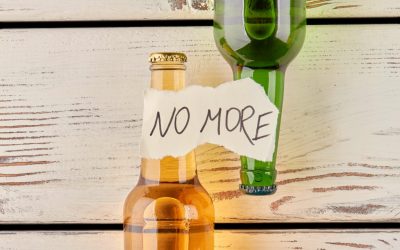In other words, you see things in terms of extremes – something is either fantastic or awful, you believe you are either perfect or a total failure. Cognitive distortions come in many forms (which we’ll cover later in this piece), but they all have some things in common. Our brains are predisposed to making connections between thoughts, ideas, actions, and consequences, whether they are truly connected or not. However, there are some occasions when you may want to second guess what your brain is telling you.
The Male Friendship Crisis
The first eleven distortions come straight from Burns’ Feeling Good Handbook (1989). To hear more about Burns’ work in the treatment of depression, check out his TED talk on the subject below. Aaron Beck began his career at Yale Medical School, where he graduated in 1946 (GoodTherapy, 2015). His required Sober House rotations in psychiatry during his residency ignited his passion for research on depression, suicide, and effective treatment. Generally, this is a good thing—our brain has been wired to alert us to danger, attract us to potential mates, and find solutions to the problems we encounter every day.
Should You Quit Smoking While Recovering from Addiction?

For the first one, overgeneralizing horizontally, as it were, you will probably find some aspects of recovery harder than others. One of the worst offenders is all-or-nothing or black-and-white thinking. In this way of thinking, something is either a total success or a total failure. The problem is that pretty much everything in life is a mixed bag and if you’re only happy with total victories, you are not going to be very happy and you’re not going to try many things. The presence of one advantage does not mean the rule or assumption is necessarily a good one, just as the presence of one disadvantage does not automatically make the rule or assumption a bad one.

How to Fight Cognitive Distortions in Addiction Recovery
Instead of believing that he or she made a mistake, people engaging in this type of thinking might automatically label themselves as failures. They can be set in motion by past memories or current environmental cues relating to substance use and are thought to be a force behind relapse, although they are not a clinically consistent predictor of relapse. Any cue with emotional significance registers on the brain’s amygdala, which then activates the nucleus accumbens and its dopamine neurons. Their activation gives rise to the sense of motivation, experienced as a highly focused urge to seek the substance. Illegal drugs pose special risks of toxic contamination and/or accidental overdose as a result of substitution with underground agents of unknown potency.

- She also draws from her Christian-based approach to lead individuals in becoming aware of the limiting beliefs that can get them stuck.
- For example, many people are medically treated with opioid painkillers for a period of time and easily discontinue medication when pain remits.
- These thinking patterns can range from low self-esteem to assuming the worst after a simple conversation with someone.
- A widely used clinical tool is the Addiction Severity Index, which provides a broad view of problems related to substance use.
- When I could control my drinking, I could still charm a crowd and make new friends.
If you’re human, you have likely fallen for a few of the numerous cognitive distortions at one time or another. The difference between those who occasionally stumble into a cognitive distortion and those who struggle with them on a more long-term basis is the ability to identify and modify or correct these faulty patterns of thinking. One of the most important factors influencing attractiveness of regular substance abuse is the existence of significant opportunities for establishing goals and experiencing meaningful rewards in life. Research demonstrates, for example, that poverty is a strong contributor to drug use, because it imposes many barriers to resources and impediments to achieving individual goals.
- Like, I don’t struggle with many of these things at this stage of the game.
- As there are only two options possible for the thinker, never anything in the middle.
- Discover the latest advancements in treating obsessive-compulsive disorder, including innovative cognitive-behavioral and strategic therapies designed to enhance patient outcomes.
As the name implies, this distortion involves taking everything personally or assigning blame to yourself without any logical reason to believe you are to blame. Mislabeling refers to the application of highly emotional, loaded, and inaccurate or unreasonable language when labeling. These tendencies are basically extreme forms of overgeneralization, in which we assign judgments of value to ourselves or to others based on one instance or experience. When we hang on too tightly to our “should” statements about ourselves, the result is often guilt that we cannot live up to them. When we cling to our “should” statements about others, we are generally disappointed by their failure to meet our expectations, leading to anger and resentment.
What Is Borderline Personality Disorder?
Family dynamics, peer influence, and mental health conditions also significantly contribute to the likelihood of substance abuse. At Lighthouse Recovery Institute, we incorporate cognitive therapies to identify https://virginiadigest.com/top-5-advantages-of-staying-in-a-sober-living-house/ cognitive distortions in early addiction recovery. We know how important it is to address the mental health of people struggling with addiction and the positive long-term effects it can have for them in recovery.
- This happens when someone jumps to conclusions without really knowing what the other person feels or is thinking about.
- In another post, we looked at how inaccurate thinking can contribute indirectly to addiction by worsening anxiety.
- Should statements are statements that you make to yourself about what you “should” do, what you “ought” to do, or what you “must” do.
- For those struggling with this distortion, the idea that we could be wrong is absolutely unacceptable, and we will fight to the metaphorical death to prove that we are right.
Personalizing would be assuming that they are in a sour mood because you’ve been a bad or unsupportive friend. When your thoughts are slipping towards relapse and you’ve challenged whether they truly serve you, it’s time to take contrary action. Addictive thought patterns are the things we tell ourselves that keep us going back to our drug of choice over and over again. The brain has a remarkable capacity for regrowth and recovery, and sobriety will revert these changes if you give it a chance. Addictions have a wide range of serious complications, many of which can be life-limiting and potentially dangerous.